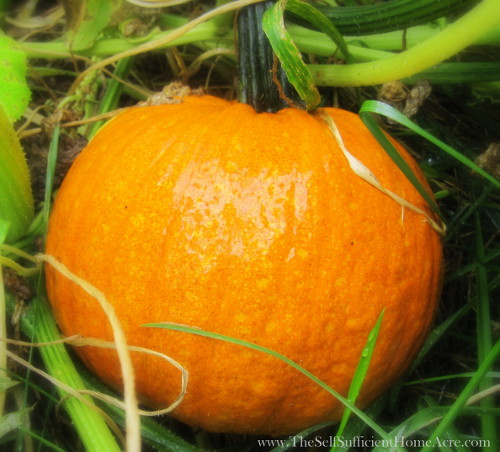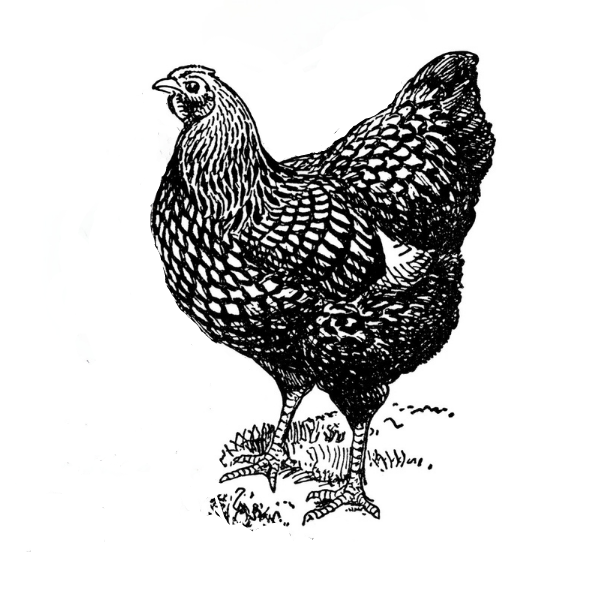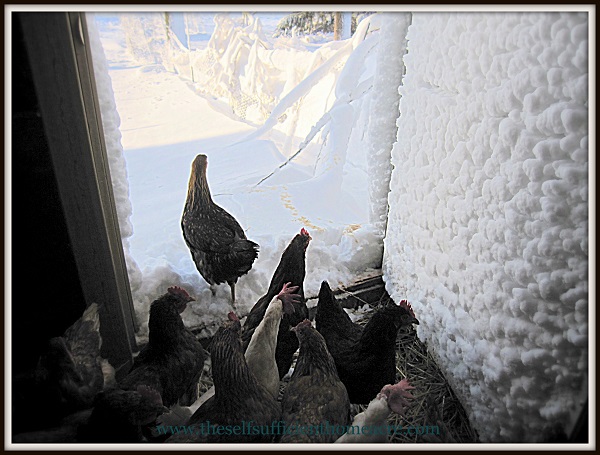How to Treat Hens that Lay Eggs with Thin Eggshells
It’s so frustrating to reach into a nestbox and find a gooey egg broken open because your hens are laying eggs with thin eggshells. There are many reasons that fresh eggs may have thin or soft shells. You may need to do a bit of investigative work to find a solution to the problem but I’m here to help! I’ve had chickens for years and have encountered this problem before. So let’s start digging into the issue to find the best solution for your laying flock when they are laying thin-shelled eggs.
I am not a medical expert and this article is not intended to diagnose or treat any illness. I am sharing things that have worked for my chickens.
This post contains affiliate and referral links and advertising as a means to earn income. You won’t pay any extra but I may earn a small commission on qualifying purchases. As an Amazon affiliate, I may earn a commission on qualifying purchases. See my disclosures.
Spoiler Alert: If you are looking for a quick answer to how I treat my hens for the best eggshell quality, here it is… I give my laying flock a weekly dose of Nutri-Drench for poultry . I went from one or two eggs broken in the nest box almost every day to rarely finding a broken egg. After giving them additional calcium in the form of crushed oyster shells, calcium-rich treats, and an electrolyte solution… I ordered a bottle of Nutri-Drench and now I will always keep it on hand!
Reasons Your Hens May Lay Eggs with Thin Shells
The cause of thin shells can be as simple as an imbalance in their diet or it could be a serious health issue. Here are some of the most common reasons that hens lay eggs with thin shells:
- Calcium deficiency
- Phosphorous deficiency
- Imbalance in calcium/phosphorous ratios in their diet
- Vitamin D deficiency
- Age of hens
- Molting hens
- Frequency and duration of egg-laying
- Disease or other problem with the shell gland
- Stressful or fearful conditions
- Mycotoxins from mold in their feed
- Poor ventilation and high ammonia levels in the coop
- Too little water
- Cold temperatures in the coop
- Time of day the egg is laid and calcium levels available from feed

Nutrient Deficiencies & Imbalances
Any time there is a lack of or imbalance in the nutrients your hens are consuming, there is the potential for health problems or eggs with thin shells and poor quality for hatching or storing. One of the best ways to make sure your laying hens don’t have this problem is to feed them properly. Choose a good-quality feed for laying hens with the label designating ‘balanced nutrition’ or a ‘balanced diet.’ These feeds will provide your laying flock with all of the nutrients they need. Make sure it doesn’t get old causing the nutrients to break down.
Hens in egg production should consume a layer feed that has the proper balance of the following nutrients for them to lay eggs with good shell quality:
- 3.5% to 4.5% calcium
- .45% to .6% phosphorus
- 2000 IU/lb vitamin D
- 16% to 17% crude protein
Make sure that about 90% of your flock’s diet is supplied by a good quality layer feed and keep a dish of crushed oyster shells for free-choice calcium supplementation available (in a dish separate from their feed) at all times.
One more suggestion for keeping your chicken flock healthy and in good laying condition is to give them supplemental probiotics. Probiotics help your hens to digest and utilize their food more thoroughly, which helps you save money on feed in the long run!
Try making your own probiotics for your flock!
Age of Hens
Older hens lay larger eggs with thinner shells and they lay fewer and fewer as they age. Some people choose to cull hens from the flock after their second laying season to keep a higher-quality shell. I have a solution that has made a world of difference for my older hens and has allowed me to keep them and continue getting a few eggs with decent-quality shells.
I’ve started giving Nutri-Drench to my laying flock about once a week to supplement their diet and keep them healthy. This also has improved their eggshell quality immensely. I was getting a broken egg in the nesting box almost every day but since I started adding Nutri-Drench to their water according to the directions, I haven’t had any more thin-shelled eggs. I am so happy to reach into the next box and pull out clean eggs again!
Molting Hens
As your laying hens go into a molt they will lay fewer eggs with thinner shells. Their bodies have been working hard to produce those eggs for your breakfast and they are getting low on calcium to create hard-shelled eggs. Most hens stop laying entirely for about 2 or 3 months while they lose their old feathers and grow new ones. Once they begin to lay again, their bodies will be stocked up on calcium and the shells should be fairly hard. However, keep in mind that as they age, after each molt their eggs will be larger, with thinner shells.
Frequency and Duration of Egg-laying
Some breeds or hybrid layers produce large numbers of eggs per year and as the year wears on, their eggshells become thin. If a hen lays over 300 eggs in a year or if she lays for a long time before going into a molt, she may lay eggs with thin shells.
If you choose to keep a light on a timer in their coop over the winter to encourage year-round production, you are more likely to see thin shells. In this case, I will also add a one-a-week dose of Nutri-Drench to their water to increase shell quality.
Disease & Shell Gland Problems
Chickens can have problems with their thyroid glands or reproductive systems that can cause abnormal or thin shells. Egg peritonitis is a serious infection of the reproductive system that can cause hens to lay eggs internally. They may also lay rotten eggs or eggs with thin shells. In case of a serious illness such as this, it is important to seek veterinary care for pet chickens or consider putting down a hen that is kept as livestock. Many of these illnesses can only be diagnosed by a veterinarian or during a necropsy study after the bird dies.
Other diseases that may cause hens to lay thin-shelled eggs are infectious bronchitis, Newcastle disease, Avian flu, and egg drop syndrome. If only one hen is laying eggs with thin shells, it is unlikely to be one of these diseases, since they are contagious and will most likely affect the entire flock.
Sometimes a hen may have a defective shell gland that causes no shell at all or a very thin, uneven shell. This is a physiological issue that can’t be solved with supplements or medication. You may keep the hen as a pet or separate her from the flock so that they don’t start eating her eggs. Make sure it isn’t a temporary glitch in the system that can cause a pullet to lay a few weird eggs before settling into her new normal.
Stress & Fear in Your Flock
Chickens and other birds that are under emotional or physical stress will often lay soft-shelled or misshapen eggs. They may even stop laying eggs until they feel safe in their surroundings. It’s important to determine the cause of their unhappiness and resolve the issue so they can get back to laying those lovely eggs with strong shells!
Things that can cause stress include:
- Barking dogs or other loud noises they aren’t used to
- Predator attacks or threats
- Changes in the layout of their coop, their feed, or their routine
- Too little water or feed
- New members added to the flock or moving to a new home
- Poor ventilation or dirty conditions in the coop or pen
- Too few nesting boxes for the flock
- Too few roosting spaces for the flock
- Injury or disease
Mycotoxins from Mold in Their Feed
Some types of mold and fungus give off toxic substances that can cause health issues for your livestock and pets. Prevent these issues by purchasing a good quality feed that is stored in clean, dry conditions and has no trace of mold or mycotoxins. Some feed companies test their feed ingredients for these contaminants so check the label if you are concerned.
Always store your feed in a cool, dry, dark area in a protective container that prevents rodents and moisture from ruining it. Don’t leave a bag of feed sitting on a concrete floor because this can cause moisture, in the form of condensation, to permeate the feed in the bottom of the bag, causing it to mold. Don’t feed moldy grains or feed to your flock. Dispose of it in the trash, burn it, or bury it to prevent the spreading of mold spores.
Poor Ventilation and High Ammonia Levels in the Coop
Dirty, moist conditions and poor ventilation in a chicken coop can cause respiratory illness, such as chronic respiratory disease (CRD). In addition to sneezing, wheezing, nasal discharge, and coughing, your flock may also begin laying fewer eggs of poor quality. Misshapen eggs with thin shells are not unusual in these cases.
The best option is to prevent respiratory illness in your flock by cleaning the coop often and increasing the ventilation to provide fresh air. Once your flock becomes ill with CRD, it is persistent and difficult to treat. Antibiotics may be prescribed by a veterinarian but anytime the coop becomes dirty and ammonia levels increase, they are prone to relapse.
Too Little Water
It probably seems obvious that your chickens need a certain amount of water to survive and thrive. However, you might not realize that without clean drinking water in fresh supply, your hens may lay eggs with thin shells and, if the problem persists, they will stop laying eggs altogether to conserve water.
Cold Temperature in the Coop
In northern areas like mine, the temperatures in your coop can drop down below freezing for long periods in the winter. When the temps drop, your hens will begin laying eggs with thinner shells. The only way to address this issue is by heating the coop just enough to keep their shells hard, without putting your hens at risk. A safe and efficient radiant coop heater is a great way to strike a balance in your coop without causing a fire safety problem.
Time of Day That Egg is Laid
Many chicken keepers feed their hens in the morning and the flock doesn’t receive any additional calcium later in the day. In a case such as this, hens are more likely to lay thinner-shelled eggs in the morning and thicker-shelled eggs in the afternoon. The difference in the shell quality between morning and afternoon is not usually pronounced enough to cause concern. However, if your hens have been in production for a while or they are laying at peak capacity, there could be a problem.
If your flock is laying a lot of thin-shelled eggs in the morning but thicker-shelled eggs later in the day, try giving them a calcium-rich treat in the afternoon to provide more calcium for hard eggshells from the hens on the early shift. Here are a few calcium-rich treats (or treats that help them digest calcium) that you can give your hens for harder shells:
- Broccoli
- Kale
- Crushed eggshells (don’t mix into tasty treats, feed on the side)
- Plain yogurt or milk kefir (small amounts)
- Cooked eggs
- Sprouts
- Mealworms or other insects
- Meat and fish
Be sure to give these treats in moderation so you don’t cause an imbalance in their diets. No more than 10% of their diet should be those yummy treats!
Eggs With Strong Shells Save Money
It’s probably no surprise to find out that losing eggs because they have thin eggshells is a waste of your hard-earned cash. So it’s worthwhile to take a bit of time to investigate the reason for your hens’ soft shells. Read through this list again and jot down some notes of the ideas you need to look into.
My best recommendation for keeping your hens in good laying condition with strong-shelled eggs is to keep a bottle of Nutri-Drench on hand at all times. Any time that you notice thin eggshells, give them a dose according to the manufacturer’s directions to boost shell strength or prevent thin shells by giving them a dose once a month to once a week.
Do you have problems with thin eggshells in your flock? What solutions have worked for you?







